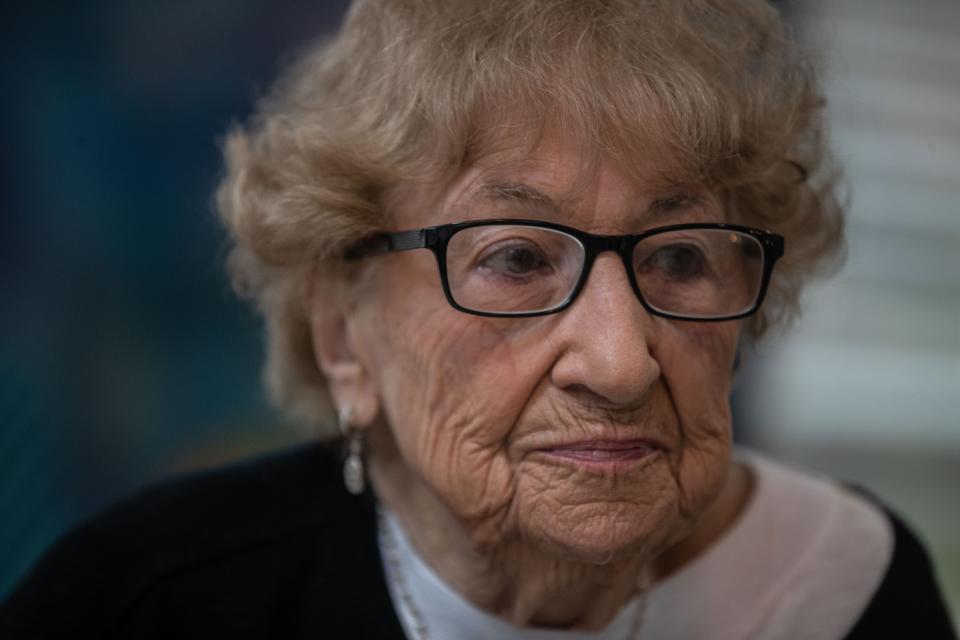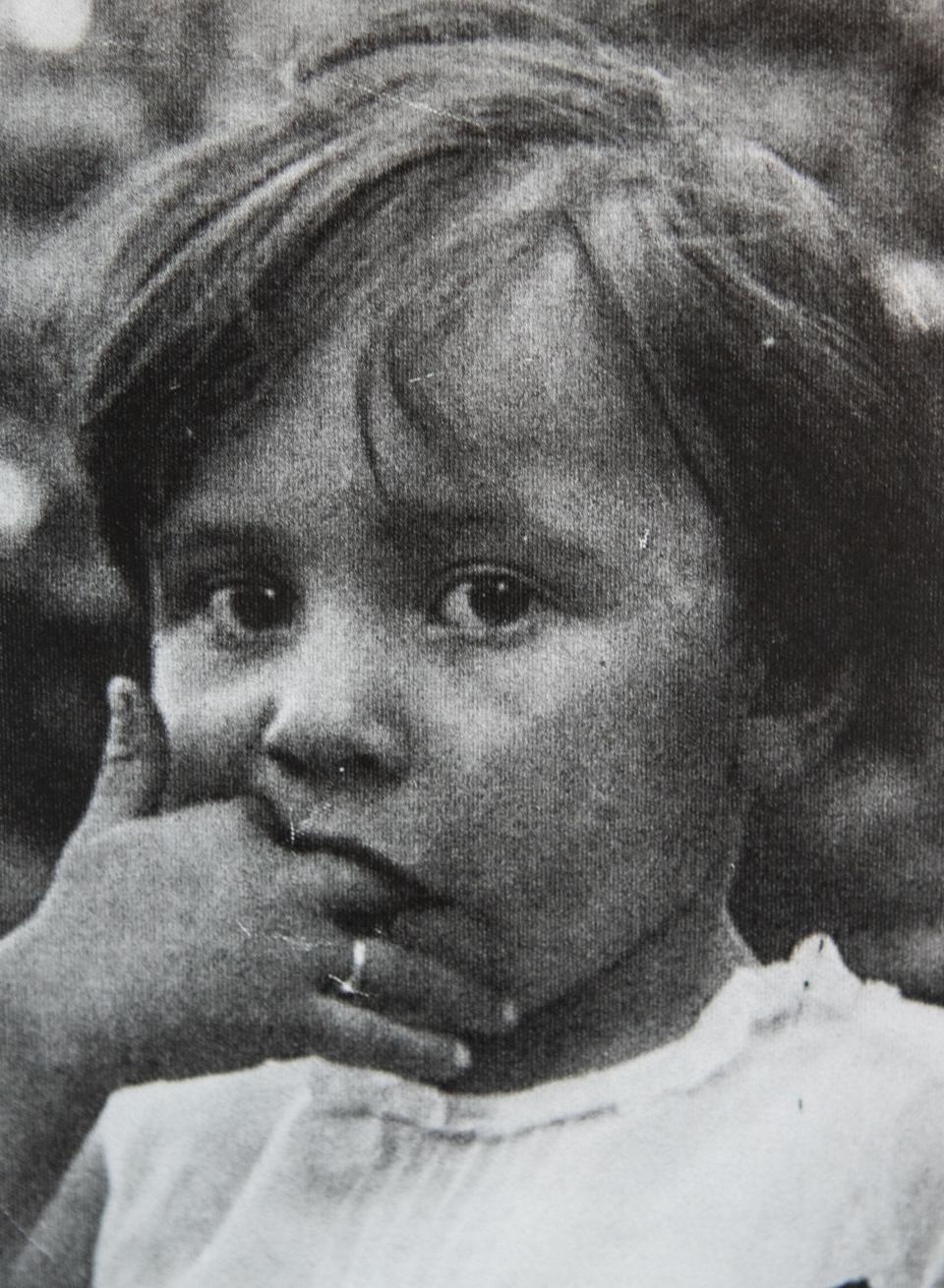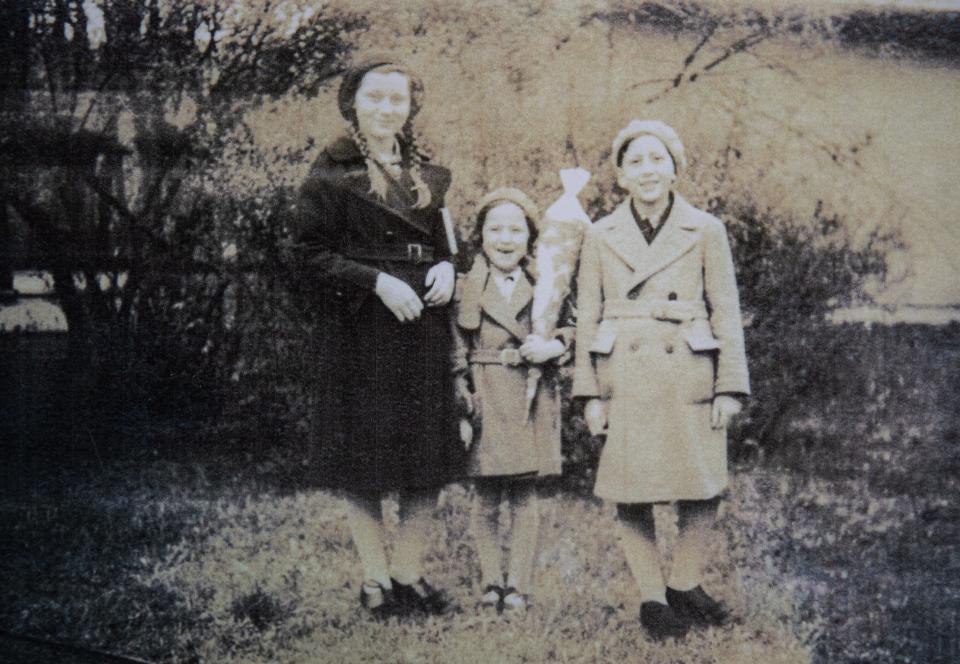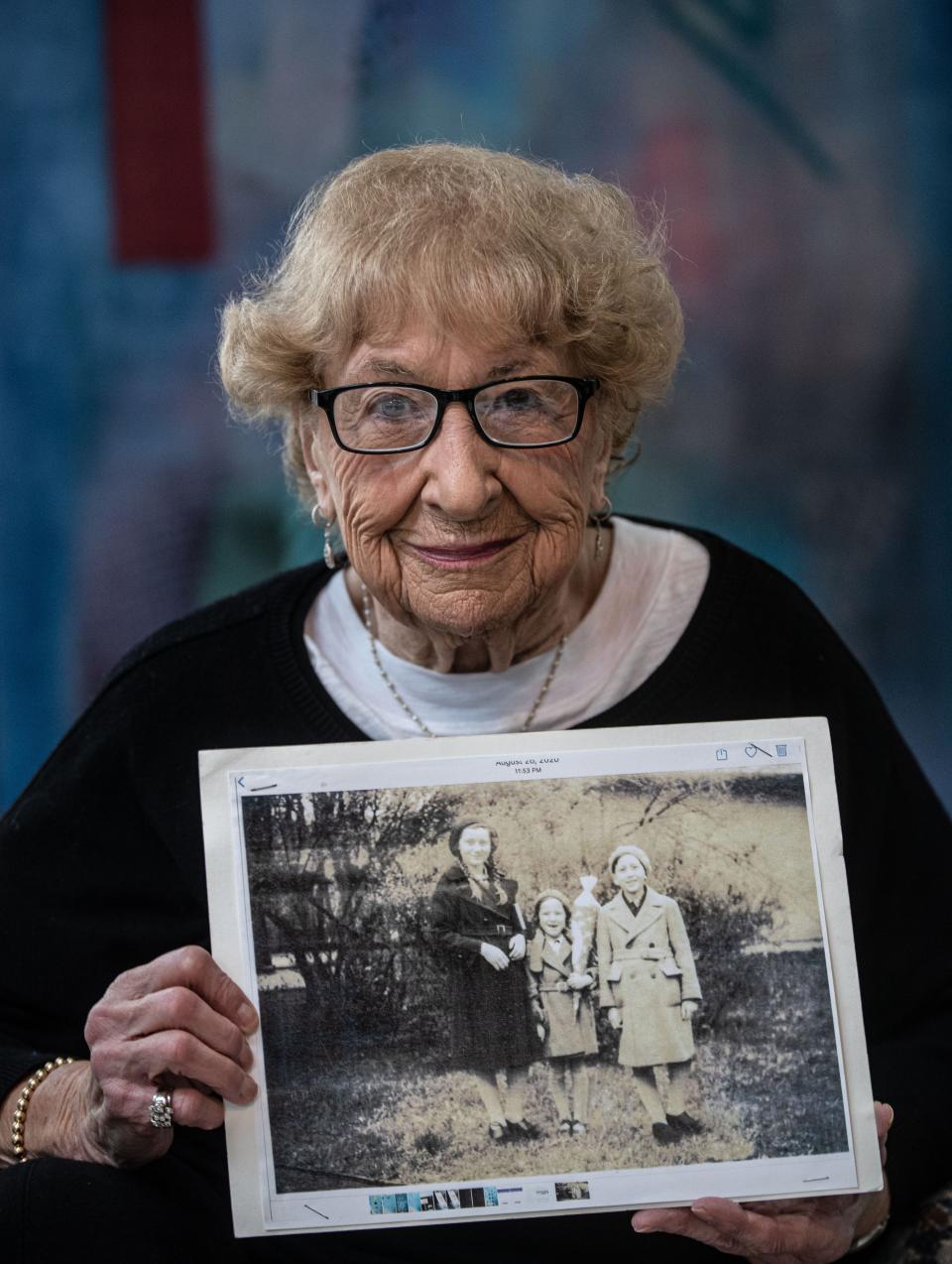Kristallnacht: A survivor views swell of antisemitism, hate through the lens of history
Eighty-five years ago, Kristallnacht laid bare the dangers of being a Jew.
Hanne Holsten was an 8-year-old girl on Nov. 9 and 10, 1938. Her family hid in the attic while the rampage in her hometown of Nuremburg erupted on the streets and into Jewish residences like hers throughout Germany and its territories.
Now 93, the Hartsdale resident reads of the soaring antisemitism and hate in the wake of Hamas' attacks on Israel and ensuing war.
"This is very reminiscent to what I lived," she said. It is the silence against atrocities and lack of response to hate speech and acts that rattle her. Back in 1938, few spoke out amid the November pogroms. "The silence was Hitler's biggest ally."
Column: At Cornell, how did the debate on the Israel-Hamas war nearly turn violent?
In the weeks after the Oct. 7 attacks, antisemitic incidents jumped 338% in the U.S., according to the Anti-Defamation League. In the same time period, the Council on American-Islamic Relations reported a 182% increase in reported Islamophobia.

Tensions continue to brew here. About 15% of Westchester County's population of about 1 million is Jewish. Rockland County is home to one of the largest Jewish populations, per capita, in the U.S. Nearly a third of the county's population identifies as Jewish, with great intra-diversity within that number.
Holsten, who has cousins living in Israel, said the hate against any group of people is wrong. "Palestinians in Gaza, they too only want just bring up their children and live in peace."
'Spread by careless language'
Eyewitness testimony from those like Holsten, who lived through the Night of Broken Glass, is fading fast. She talks at schools, community centers, houses of worship, anywhere that wants to hear her story. She readily admits not many her age can still do so and she is eager to share while she can.
During Kristallnacht, scores of businesses, synagogues and Jewish schools were damaged, set afire, ransacked. The destruction was costly and Jewish businesses saw their insurance payouts confiscated, with an "atonement fee" added. Jews were killed, 30,000 were rounded up and taken to concentration camps. It was the first demonstration of the mass arrests to come and a dramatic escalation of the hate that fed the Holocaust.
Efforts to document first-hand memories of Kristallnacht have added urgency now as ever-present antisemitism and hate swell.
The Conference on Jewish Material Claims Against Germany, a nonprofit that secures compensation for Holocaust survivors around the world, is creating a mixed-reality experience, “Inside Kristallnacht." The documentation of the horrors of November 1938 is in partnership with the USC Shoah Foundation and XR company makemepulse.
“Hate is a disease spread by careless language, insensitivity, and a tolerance of ignorance," said Greg Schneider, executive vice president of the Claims Conference. "We’re living through a pandemic of hate now. We know this hate. We’ve seen what it can do. We know what fuels it and how it spreads.”
Ari Rosenblum, CEO of the Jewish Federation & Foundation of Rockland County, said speaking out is consequential. So is silence.
"I see the silence of many people," Rosenblum said. "I see the actual antagonistic actions of many people. But I also see a lot of people standing up as allies. Maybe not as much as I would like. But it is there. We do have friends."
When people call out hate, he said, "the consequence should be that we thank you and embrace you." He added: "If you are carrying water for Hamas and ripping down posters of 10-month-kids in Gaza who were kidnapped … that should be consequential."
Hanne's doll
In November 1938, little Hanne was living with her mom and an older brother and sister on the third floor of a multi-family house. Her father, a master tool & dye maker, watchmaker and jeweler, had already been sent to a camp.
Her mother shielded her from much of the tumult of the times, and so it was on Nov. 9.
As her family hid in the attic, Holsten recalled, they heard the boots, stomping up the stairs. Soldiers were at the door, with bayonets. "Will you be shot, will you be beaten up," she said, her eyes half-closed remembering. "You just don't know."

Somehow, her mother managed to use her Polish passport to convince the military to let her family be.
"But when we came down to the apartment, I don't think there was anything that wasn't destroyed," Holsten said. Couches were slashed, the gramophone and records were broken. Apparently, that wasn't enough damage; the men had urinated all around the apartment. "Why," Holstein still asks.
The next day, she went to school and asked her best friend if they could play later. "Oh, I can never play with you," she recounted her friend saying, "you're a dirty Jew."

About a week later, the family and hundreds of others were brought to a jail and loaded into railway boxcars. They were sent to the Polish border, but Poland declined to let them disembark.
Upon their return, Hanne's mother set forth a plan: Hanne and her 11-year-old brother were sent by train to Amsterdam to join their father, who had apparently bribed his way out the camps and into Holland.
Their mother gave Hanne a doll and her brother a suitcase with a favorite toy. When the train got to Holland, they weren't let off, but an aunt was allowed to come aboard and check on them. Hanne recalled how her aunt gave her a new doll and her brother a new suitcase and took the old ones to discard.
Later, she figured out that her mother had secreted jewels in the doll and suitcase to get to her father. He used the funds to smuggle the family out of Germany to Holland then to Belgium. They then went to Cardiff Wales, carrying gas masks to school during the Blitz, then headed by boat to the U.S. on dangerous waters.
Now a widow, Holsten has three children, 10 grandchildren, four great-grandchildren and one on the way. "I think I made a life," she said. But she says she's not complacent nor afraid to continue to speak out against the silence she says is a threat.

Rosenblum of the Jewish Federation said the rise in antisemitism, and the silence that too often greets it, should concern all. He recently returned from Israel, where he and other Jewish leaders from around North America met with soldiers, people who had been displaced by war and families of hostages.
"I went there to give them strength," Rosenblum said. But one mother of a hostage asked him about how he's doing. "We’re going to be O.K," she told him. "But we are worried about you in America, in the diaspora, where we see the antisemitism."
This article originally appeared on Rockland/Westchester Journal News: Kristallnacht recalled by Hartsdale woman amid today's antisemitism, war

